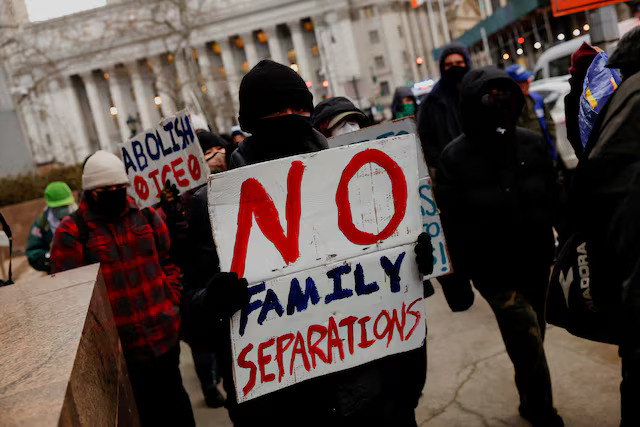Former U.S. President Donald Trump’s administration has unveiled a controversial plan to fine undocumented migrants up to $998 per day if they fail to leave the country after receiving deportation orders. The fines, based on a rarely used 1996 immigration law, could be applied retroactively for up to five years, potentially leading to charges of over $1 million for some migrants.
Documents reviewed by Reuters reveal that the Trump team intends not only to issue fines but also to seize property from those who refuse or fail to pay. Government emails show that the White House has pressured Customs and Border Protection (CBP) to enforce these financial penalties and manage any related property seizures. The Justice Department’s civil asset forfeiture division may also be involved.
A statement by the Department of Homeland Security (DHS) spokesperson Tricia McLaughlin emphasized that undocumented migrants should use the rebranded CBP mobile app, now called CBP Home, to “self deport and leave the country now.” She added, “If they don’t, they will face the consequences,” referring to the $998 daily fine for each day they overstay.
This push is part of Trump’s broader immigration crackdown in his renewed presidential campaign, targeting over 1.4 million people who have been ordered deported by immigration courts. The policy echoes Trump’s first term, when his administration briefly fined a group of church-protected migrants before backing down under legal and public pressure.
President Joe Biden had canceled the fine policy upon taking office in 2021, but Trump’s team now seeks to revive and expand it. Critics, including former ICE official Scott Shuchart, argue that the proposal aims more to instill fear than to enforce legal compliance. “Their point isn’t really to enforce the law,” he said, “it’s to project fear in communities.”
The policy could deeply affect mixed-status households, where undocumented migrants live alongside U.S. citizens or permanent residents. According to the advocacy group FWD.us, around 10 million undocumented migrants live in such families. Financial penalties could push already vulnerable households—many living below the poverty line—into deeper economic hardship.
Emails reveal friction within federal agencies about who should manage the fines. While the White House has encouraged CBP to lead the effort, an internal CBP memo reviewed by Reuters recommends that ICE (Immigration and Customs Enforcement) should take the lead. The memo also highlights that CBP’s systems are not equipped for handling these fines and would require significant upgrades, including hiring around 1,000 new paralegals, tripling their current staff.
No official launch date for the fine system has been announced, and DHS has not responded to detailed questions about technical implementation or the involvement of Trump advisor Stephen Miller.

